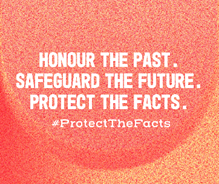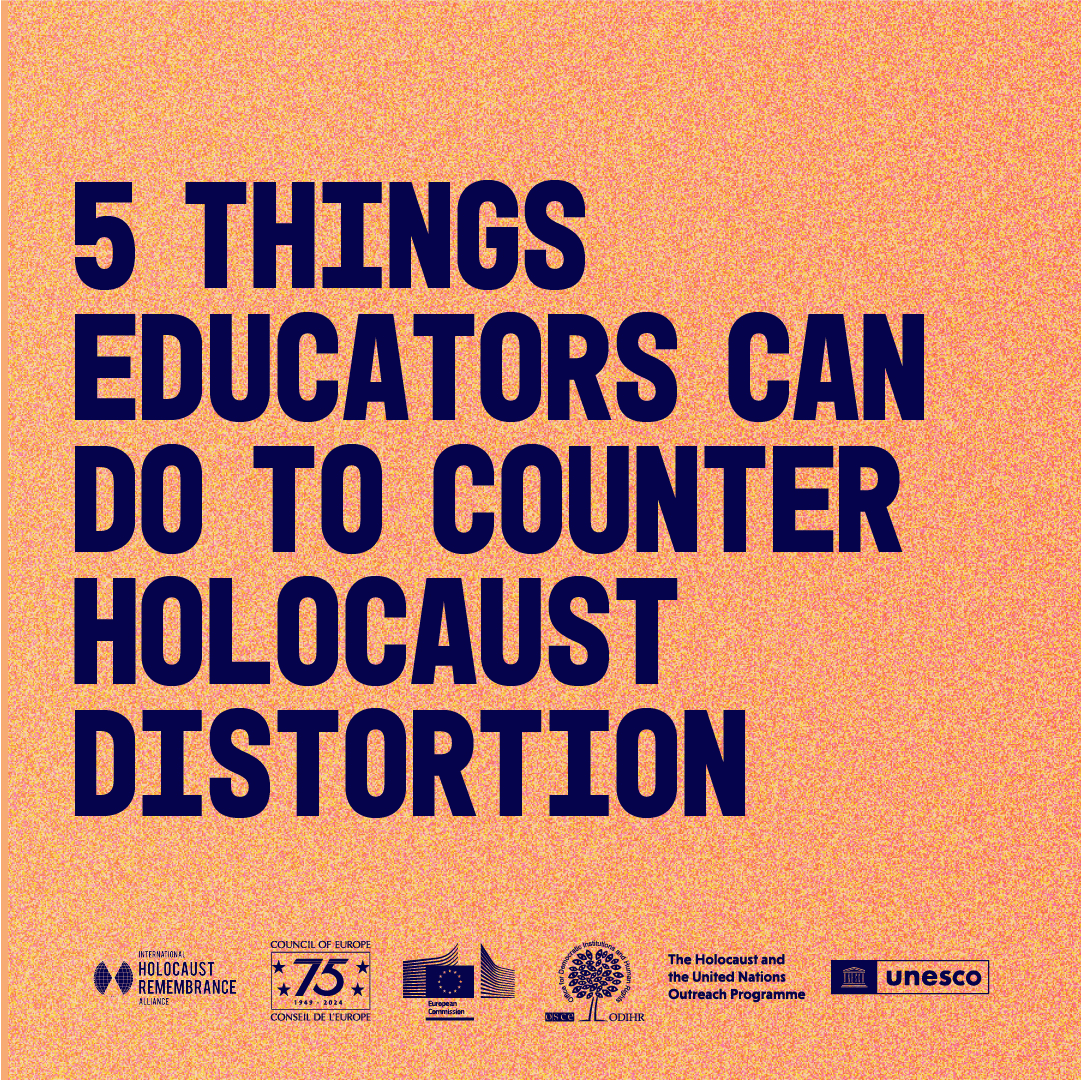“I usually treat historical disinformation as facts, it never occured to me that these data can be false.” – Bercel, 10th Grade Student at Baranya County SzC Miklós Radnóti Technical School of Economics in Pécs, Hungary
When József Vojcsik first approached the topic of Holocaust distortion with his 10th grade students at Baranya County SzC Miklós Radnóti Technical School of Economics in Pécs, Hungary, they were shocked not only by this phenomenon, but also by the very fact that one could be motivated to falsify historical information, blame the victims and survivors of the Holocaust for the Holocaust itself, or even deny that it happened.
The need to address Holocaust distortion is evident
As Holocaust survivors are passing, a major decline in knowledge about the Holocaust and its consequences is being widely observed, in the classroom and beyond. Holocaust distortion thrives against the backdrop of rising hate speech, dangerous populist political movements, extremist ideologies and online spaces where misrepresentation of the Holocaust history spreads extremely quickly. It disrespects the legacy of victims and survivors of the Holocaust and endangers future generations’ opportunity to learn from the past.
The need to protect the facts of the Holocaust is therefore becoming more urgent than ever. In this context, today and tomorrow, education remains one of the most powerful tools to build learners’ defenses against these trends.
But teachers are working against Holocaust distortion in their classrooms

According to teachers, to effectively counter Holocaust denial and distortion, schools should be the safe places of exchange, where learners can build communities, and develop their critical thinking skills. Vojcsik shares, “More and more, schools remain the only place where students have conversation.”
Using the #ProtectTheFacts website and materials, Vojcsik’s students learned more about the basic facts of the Holocaust and could analyse the motivation behind spreading Holocaust denial and distortion even about historically undeniable facts. Reflecting on the campaign materials, his students concluded that “the person living in the present has to take action in order to preserve the past, because our relationship with the past defines our future.”
Protect the facts of the Holocaust to honour the past and safeguard the future.
Learning the facts of the Holocaust is essential for students to confront wider trends of dis/misinformation and to counter contemporary forms of antisemitism and other prejudice. By fostering critical thinking, promoting accurate historical knowledge and cultivating safe spaces of exchange, we can educate young people about the Holocaust so that they can better spot, address and counter Holocaust distortion. History teachers have a great responsibility in this work, says Vojcsik, as they teach the facts that shape how future generations interact with the Holocaust and its legacy.

Find this asset and more in the campaign’s toolkit for 27 January 2024.
Disclaimer: The views expressed by the individual contributors to the blog do not necessarily reflect those of the Council of Europe, European Commission, the International Holocaust Remembrance Alliance, the OSCE Office for Democratic Institutions and Human Rights (ODIHR), the United Nations, UNESCO, or officials of Member States of the Council of Europe, European Commission, IHRA, the OSCE Office for Democratic Institutions and Human Rights (ODIHR), the United Nations and UNESCO.